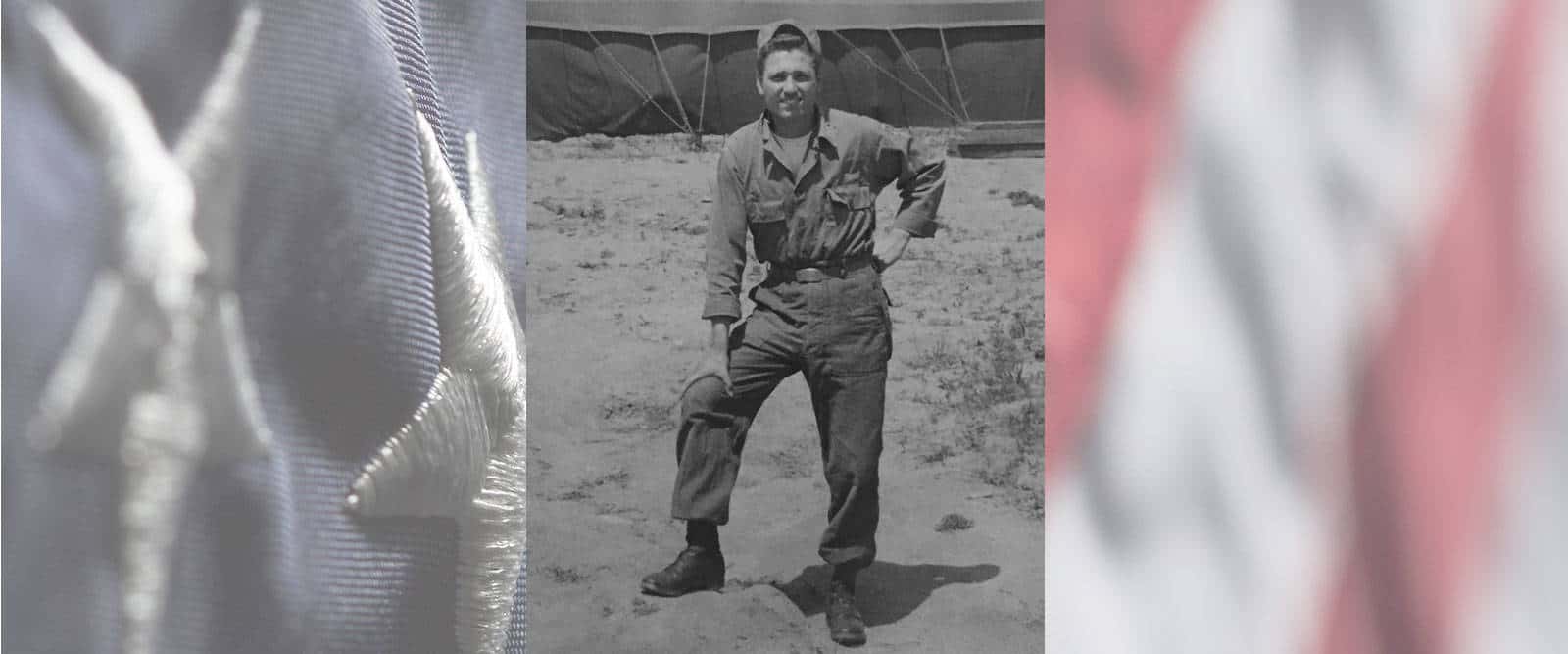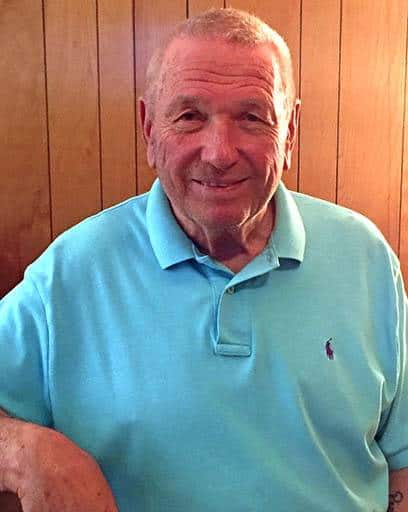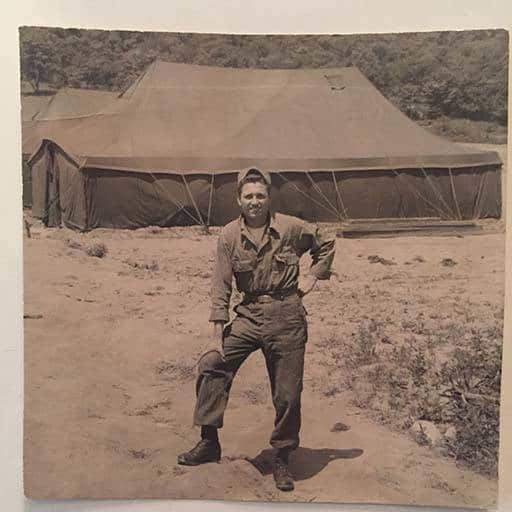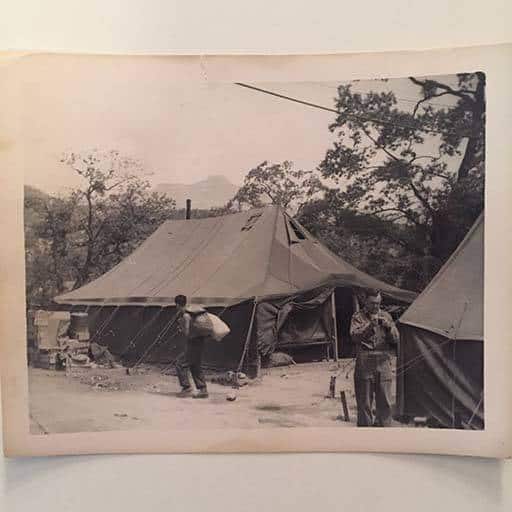U.S. Army Korean War Morton Grove, IL Flight date: 08/09/17
By Paul Mally, Honor Flight Chicago Veteran Interviews Volunteer
It was 1954 and Army Specialist Erwin Rabin sat at his company clerk’s office at Schofield Barracks on Oahu, Hawaii. He never would have imagined he was also sitting on the set location of what is now a classic movie – but he was!
The path that led to that posting near Honolulu was a study in contrasts for “Erkie”, a native of Chicago’s Albany Park neighborhood. The Rabin family lived near Kimball and Lawrence Avenues and at that time, his whole universe involved that neighborhood. That would soon change. During Erwin’s final semester at Roosevelt High School, the Korean War broke out. After graduation, he began attending business classes at the University of Illinois which, at that time, had a campus on Chicago’s Navy Pier. During winter, it was often quite cold there with winds blowing directly off Lake Michigan. “Sometimes I’d have a class on one end of that long pier and then would have to scurry to my next class all the way on the other end.” College life would soon be interrupted. “There was the draft and we were all given an exam to determine if we could continue our studies or go into service – and I flunked the exam!” In a short time, after receiving his draft notice, Erwin was told to report at 3AM to the old Florsheim Shoe factory on the outskirts of downtown for induction into the United States Army – next stop basic training.
During those eight weeks at Fort Leonard Wood, Missouri, Erwin and his fellow recruits learned the basics of military life: saluting, manual of arms, marching, keeping one’s uniform, equipment and quarters “squared away” the Army way. Then it was off to Fort Riley, Kansas for infantry training. All soldiers were issued M1 Garand rifles but after becoming one of the more proficient marksman in his platoon, Erwin was issued the Browning Automatic Rifle, or BAR. “There were two BAR men in each squad. We trained to attack up hills, throw grenades and provide covering fire. But my favorite weapon was the Browning .50 caliber machine gun. THAT was a powerful gun.” When training was completed, everyone was called into formation to receive their next assignment. “They called my name and simply said – Korea.” Erwin flew to Seattle, Washington and after some indoctrination at Fort Lewis, boarded a troop transport for an often turbulent crossing of the northern Pacific Ocean. Living conditions were less than luxurious. “They assigned us to our quarters below deck. The bunk beds were stacked five high and we had to just throw our duffel bags in the center of the cabin. The washrooms were awful. Guys were seasick and puking all over. The air was putrid and the only relief was on deck topside.” The men ate in the mess hall standing up at the tables. “The food was so lousy you couldn’t even look at it. All I could get down was hard boiled eggs.” Relief finally came with their arrival in Japan where Erwin was assigned to the 27th Infantry Regiment, 25th Infantry Division.
Still more weeks of training ensued. “We were issued a new set of fatigues once a week, bivouacked in the field, and generally got used to roughing it.” Soon enough, the unit was loaded aboard LSTs (Landing Ship Tank) and made the journey across the Korea Strait and around the west side of the Korean peninsula to the port of Inchon where General MacArthur made his daring amphibious landing earlier in the war. “We had to wait until high tide before we could unload. Once we did, we saw stockpiles of supplies by the docks including cases of Coca Cola. It struck me how this little part of home followed us across the thousands of miles.”
By this time, the armistice had been signed at Panmunjom ending active fighting between the North Korean, Chinese and U.N. forces. A demilitarized zone had been established to keep the opposing forces apart. Erwin’s unit was moved by train further north and positioned a few miles from the DMZ. They were to act as a buffer should hostilities break out again, which was (and still is) a real possibility. To this day, the Korean War has never officially ended. A camp was set up along a creek in a valley nestled between some hills. Once again, the troops were lined up for inspection and Erwin’s commanding officer went up and down the line talking to the men. “The Colonel came up to me and asked me what I did as a civilian. I had worked as a stock boy at Marshall Fields department store, so he assigned me to work in the PX (Post Exchange.)” Camp life settled into a routine interspersed with long training marches. “The food was pretty basic. I ate everything though and never complained.” Payday was the first of the month and everyone was paid in scrip. The men could buy stamps, cigarettes, cameras, different odds and ends. Local Korean helpers did the troop’s laundry. The local people were very poor. Their elders or “Papa Sans” wore white outfits and broad brimmed hats. Woman carried supplies on their heads. “But the kids were just kids like any other at that age” Erwin recalls. “They were just like the kids back home.”
Eventually, Erwin was offered an option to either stay in Korea or take another assignment in a place with conditions far different from the DMZ – Hawaii! “I decided to take that opportunity and my next posting was at Schofield Barracks.” During the attack on Pearl Harbor, this headquarters of the 25th Infantry “Tropic Lightning” Division was one of the first installations to be strafed by incoming Japanese aircraft. “You can still see the bullet holes there” Erwin relates. The barracks were a marked contrast from Korea. “We had a real washroom, real beds and real food.” Yet another inspection led to Erwin being assigned as the clerk for G Company where real life and a Hollywood movie came together.
The previous year, Schofield Barracks had been the movie set for “From Here To Eternity” which included a star-studded cast including Frank Sinatra, Montgomery Clift, Ernest Borgnine, Donna Reed, Deborah Kerr and, portraying the company clerk, Burt Lancaster. “I had the exact same duty as Lancaster had in the movie – typing up daily reports for the company CO.” “If you watch that movie, you get picture exactly of how the barracks looked when I was there, except there was no one fooling around with the officer’s wife, no fights on the parade ground or wild drunken brawls in town!” Years later, Erwin would return to Hawaii on a vacation with his late wife of 59 ½ years, Pearl. “Everything looked different until we drove by the main gate and then something clicked in my mind and I started to recognize my old base.”
Erwin now leads an active life spending time with his son, daughter and five grandkids. His journey from Chicago, to Korea, to Hawaii will continue with his honor flight to Washington D.C. along with his fellow veterans. Mahalo for your service Erkie and Aloha!






